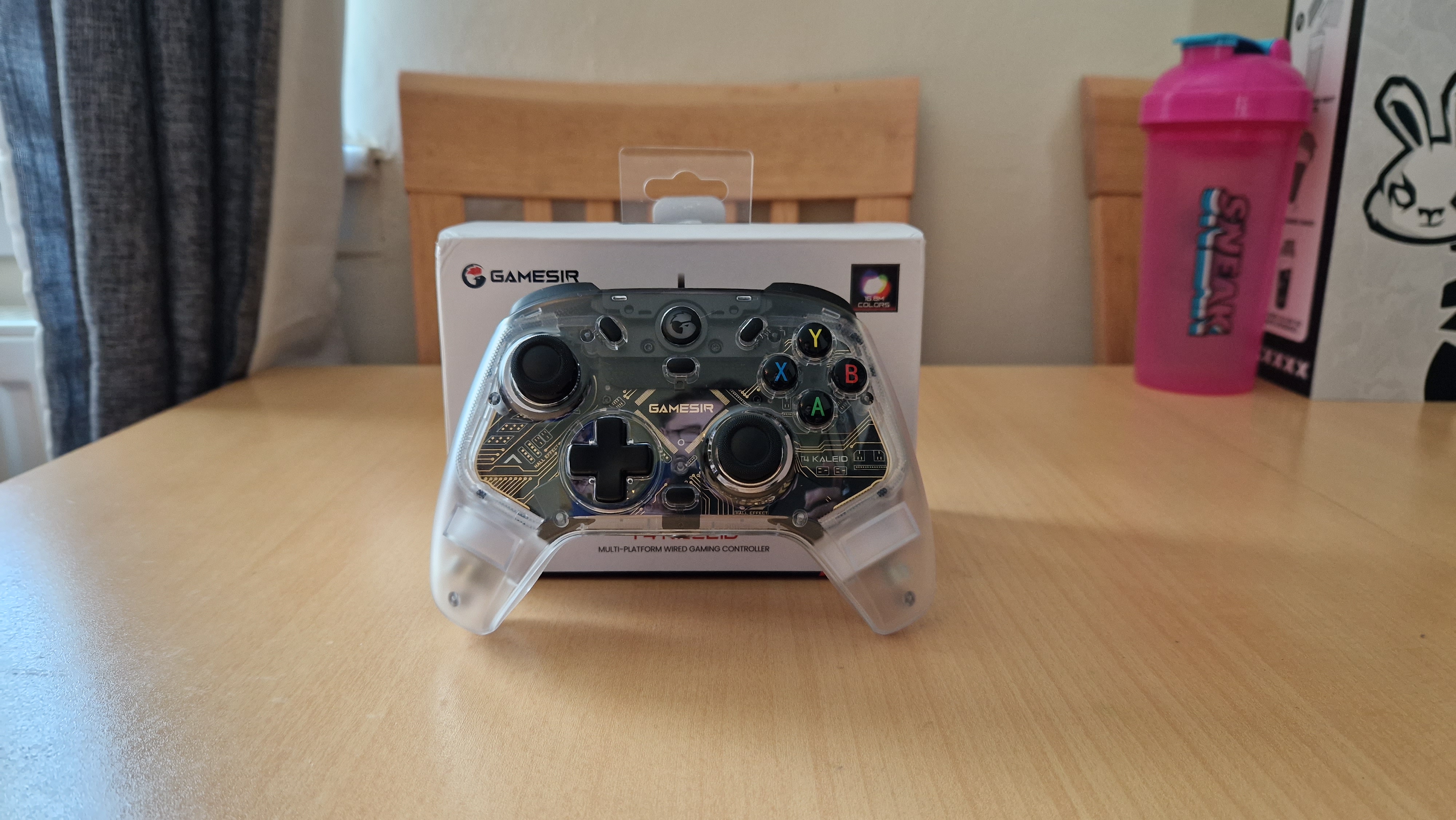
The GameSir T4 Kaleid is the latest multi-platform controller from GameSir, best known for its mobile controllers and super affordable prices. Available for use on PC, Android TV, and Nintendo Switch, it asks an important question: how expensive should a pro controller be in this day and age? Because despite the number of features on offer here, it might be one of the cheapest controllers worth buying right now.
Many shoppers are stunned when they see the price of a modern-day pro-controller. Paying upwards of $170 for extra buttons and features is a big ask, especially when, in my opinion, we really should be getting those extras in stock controllers by this point. GameSir sees those high prices from the likes of Sony, Microsoft, Razer, and the rest, and it says "hold my beer". The T4 Kaleid doesn't just undercut those rivals, it exposes them for over-charging by putting a lot of their premium features in a cheap-as-chips package. Not only that, it creates good faith by using Hall Effect sticks.
For some, the T4's transparent design combined with the sub-fifty dollar price might sound some alarm bells. There's no way something this good can be true, and as a wise man once said; "If you buy cheap, you buy twice."
After some scrupulous testing, however, I'm amazed by the T4K's price-to-performance. For just £41.99 / $41.99, there's a serious gamepad to be had here. It wouldn't be my first choice against the best PC controllers money can buy, but for the more casual, and indeed more budget buyer, this is such a solid contender.
Design and Features
A transparent controller design isn't seen all too often these days, especially among the best Nintendo Switch controllers. Some players may not enjoy that stripped-back see-through chassis, and for those people, I imagine the (extremely bright) RGB lighting will be more of a draw. For me though, I find that transparency really fascinating, and it makes me nostalgic for the days of transparent DualShock 2 controllers on PS2. It's a great thing to feel a rumble in the grips of a controller and look down at it, to be met with the spinning gears visibly vibrating on the inside. The circuitry is on show too, although not entirely.
On the textured grips of the T4 Kaleid, you'll find two back buttons. These are excellently placed where my middle fingers wrap around the controller and take absolutely no displacement of my hands to use. Altogether, the pad weighs a light 380g.
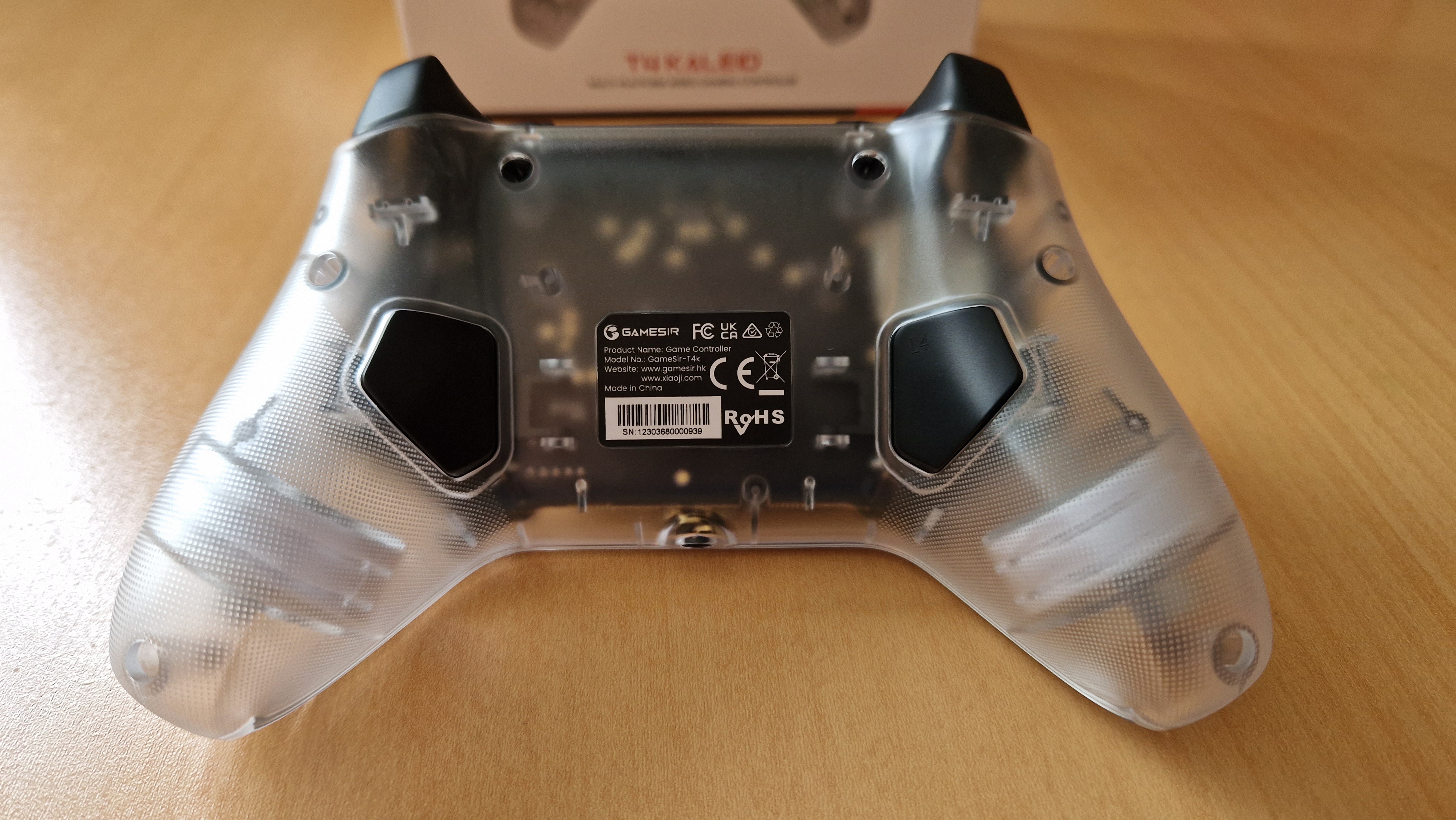
Somewhat most notably, the offset or asymmetrical sticks are Hall Sensor ones. For those who aren't aware, the majority of controller analog sticks use a potentiometer mechanism. These use sensors that rely on physical contact between them and the thumbstick. Over time, because of this physical contact, the mechanism can degrade and become less accurate, causing that annoying stick drift you may have heard so much about. Hall Effect Sensors, on the other hand, don't need any physical contact between the stick and the sensor because they use tiny magnets to measure the joystick's movements.
These Hall Effect mechanisms are also used in the T4K's triggers, supposedly giving more accuracy and smoothness. The face buttons have a 0.6mm actuation distance, and press in with a very satisfying and tactile "click" that feels on par with the face buttons of the Razer Wolverine V2 Pro. These buttons have a quoted 5 million click micro switch life span thanks to soft rubber pads that provide a cushioned feel.
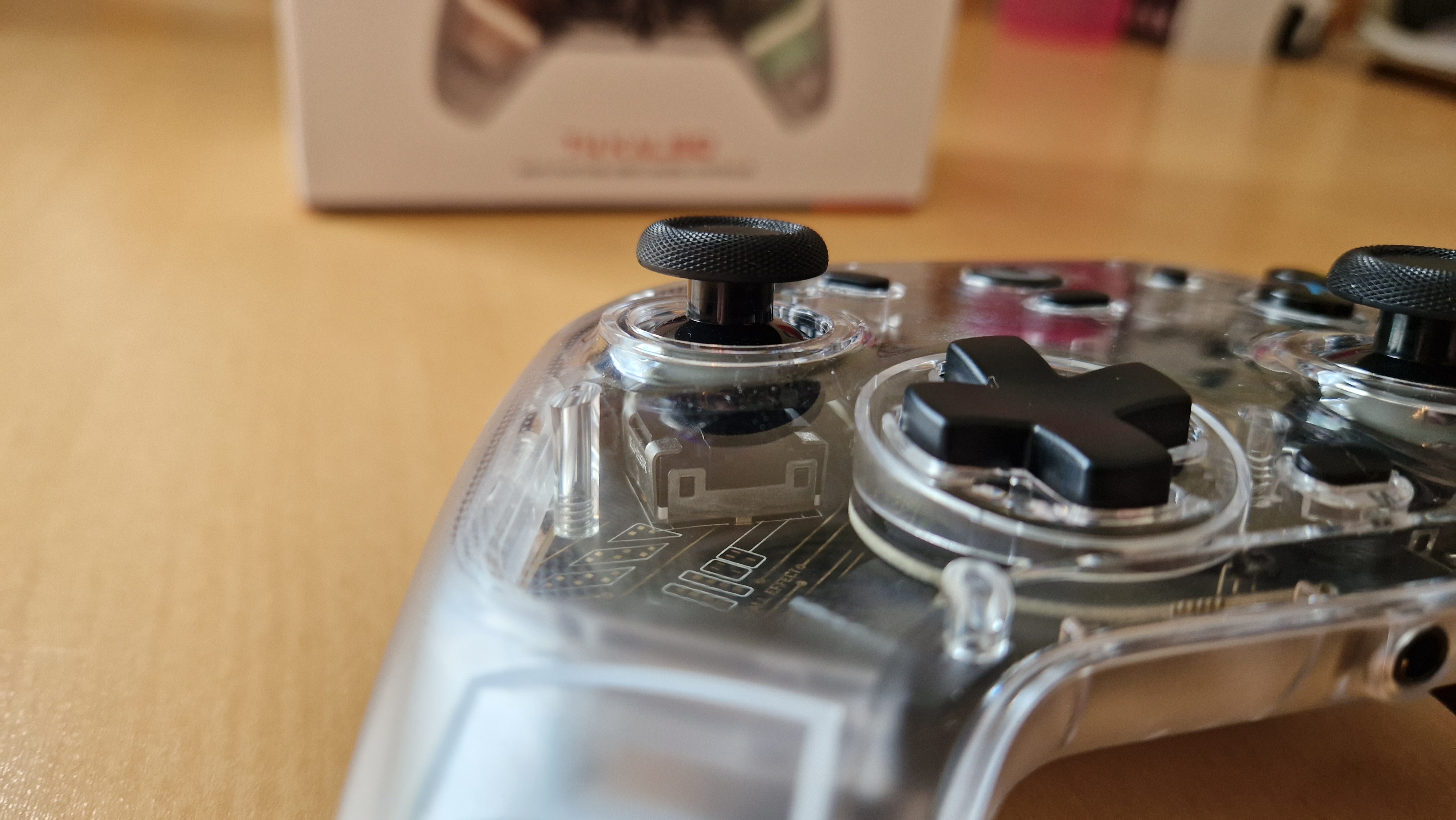
Unfortunately, there's no wireless option with the T4 Kaleid, it's a USB-C to USB-A connection or nothing, which is a bit of a shame. Viewing it as a Switch Pro controller especially, it's hard to argue this is something you can take on the go, and given the incredible battery life of the official Nintendo Switch Pro controller, the extra features and two back buttons are a big toss-up. At least there's motion control built into the pad so stunts in MarioKart 8 can still give you a speed boost.
That brings us to features. As mentioned, the T4 Kaleid can be used with your best gaming PC or an Android TV - do note, since it's wired, it won't really be viable as a mobile controller - although if you have a USB-C to USB-C connection feel free to try, I haven't tested this before the review though. Along with your purchase, you get a 2m braided USB-C to USB A cable and a very handy manual which I don't recommend throwing away with the box.
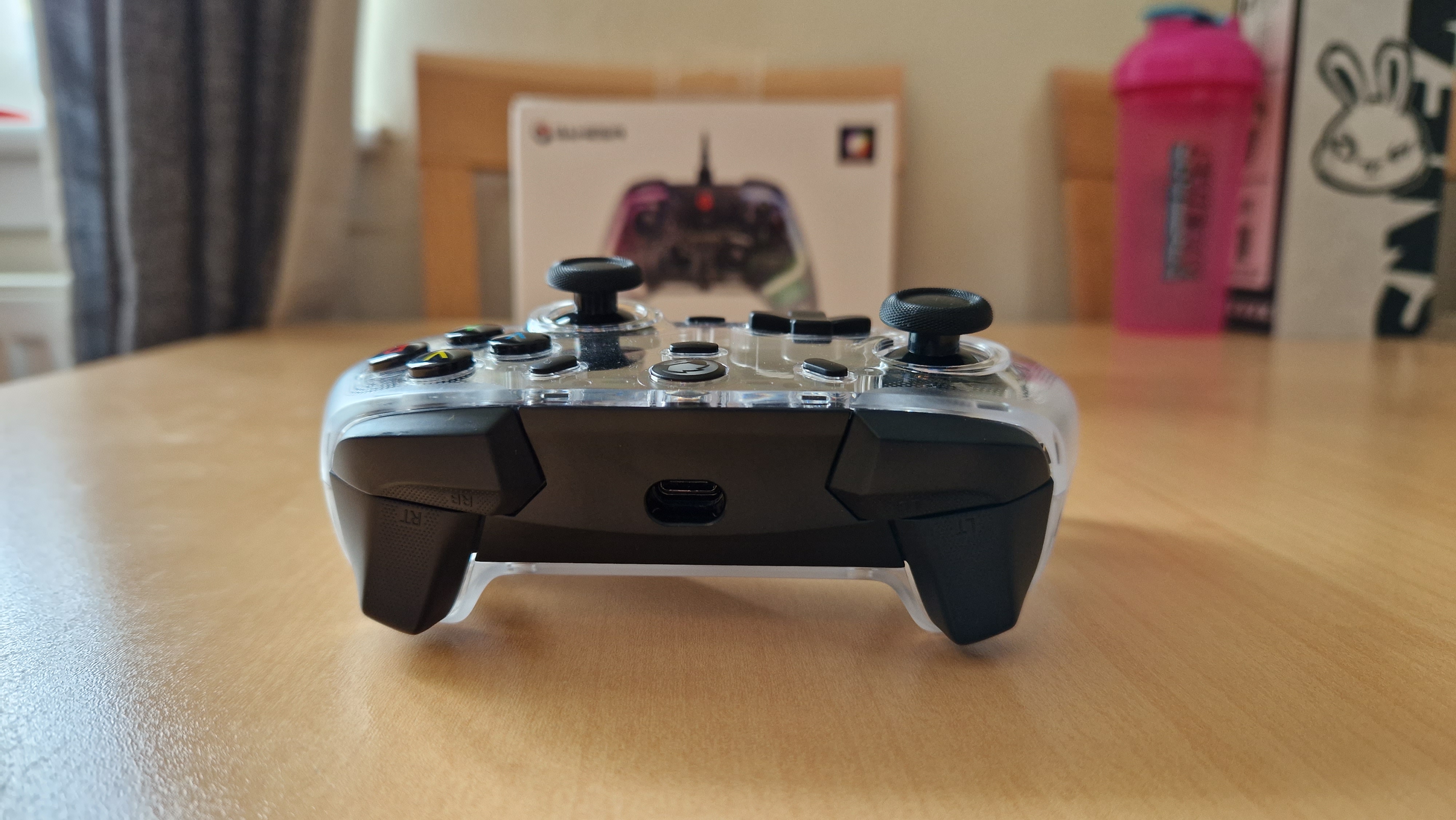
I say that because even though GameSir has some companion software you can download to help control things, you can conveniently switch between settings and functions using special button combinations on the controller itself. At the bottom center of the controller's mid-section, there's an "M" button. Pressing this, or the GameSir branded "Home" button in combination with the pad's other keys will change what device you want to play on, disable or enable hair-trigger mode, increase or decrease vibration intensity, Switch up, brighten, or dim lighting profiles, or even interchange the A-B and X-Y buttons. Using these combinations is also the quickest way to calibrate back-button assignments.
Lastly, there's a Turbo Function that can be enabled for any of the buttons. After testing for over a week and reading all the online material I can, I'm stumped. I have no idea what this function does. All I can say is that when I accidentally turned it on, I couldn't mine any minerals in Spiritfarer. Doing so uses a button-hold mechanic that you need to release at the exact right time. For some reason, while Turbo mode was on, buttons being held down wouldn't register. Maybe this is a multi-press function like you see on a couple of the best gaming mice - who knows? Either way, I'd be careful you don't accidentally turn it on during a competition.
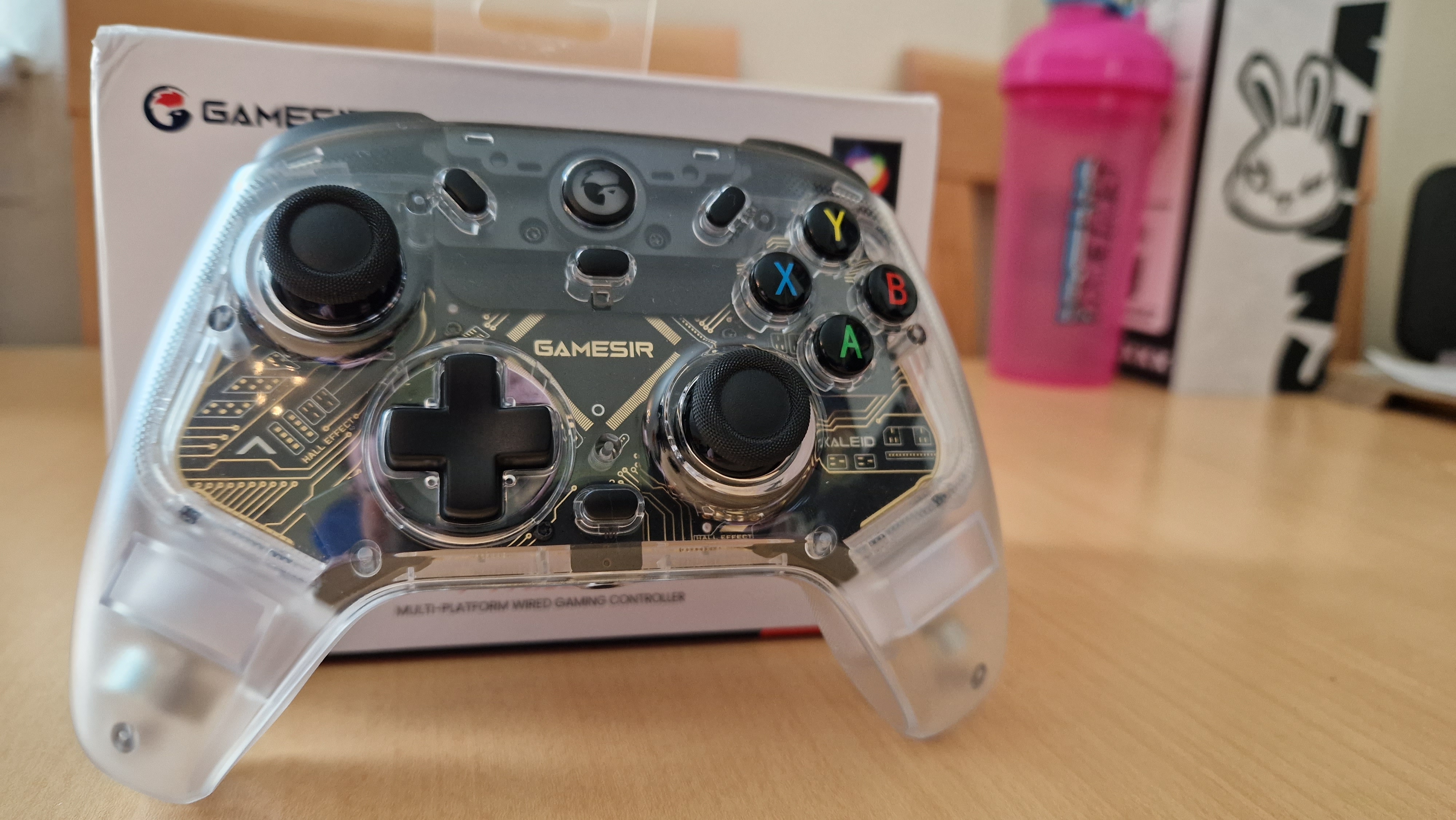
Performance
Once again, I am shocked at how well this controller performs. For the price, I really expected a cheaper feel, but I tested this controller on a larger number of games than I have maybe any other one I've reviewed (with maybe the exception of the Victric Pro BFG), and it felt great to use in every game. The back buttons were handy, albeit not all too necessary for the majority of Nintendo games. Oddly enough, out of MarioKart, Super Mario Odyssey, Super Smash Bros Ultimate, Super Mario 64, and Animal Crossing New Horizons, back buttons came in handiest in the latter. Having those extra functions to pull out certain tools was surprisingly useful, and the T4 Kaleid made it super easy to hop back in after a year or so of not visiting my island.
Super Mario 64 is one of the first games I ever played, so it was fun to test out a new controller with it. The sticks felt super precise, which is helpful when jumping around Peach's Castle all these years later, especially when the camera and Mario's movements can be a little hard to control. Having a controller like this during a classic Bowser boss fight genuinely made me feel like had an unfair advantage over the poor guy. Not least because I've grabbed that giant lizard tale and thrown him at bombs more times than I can count.
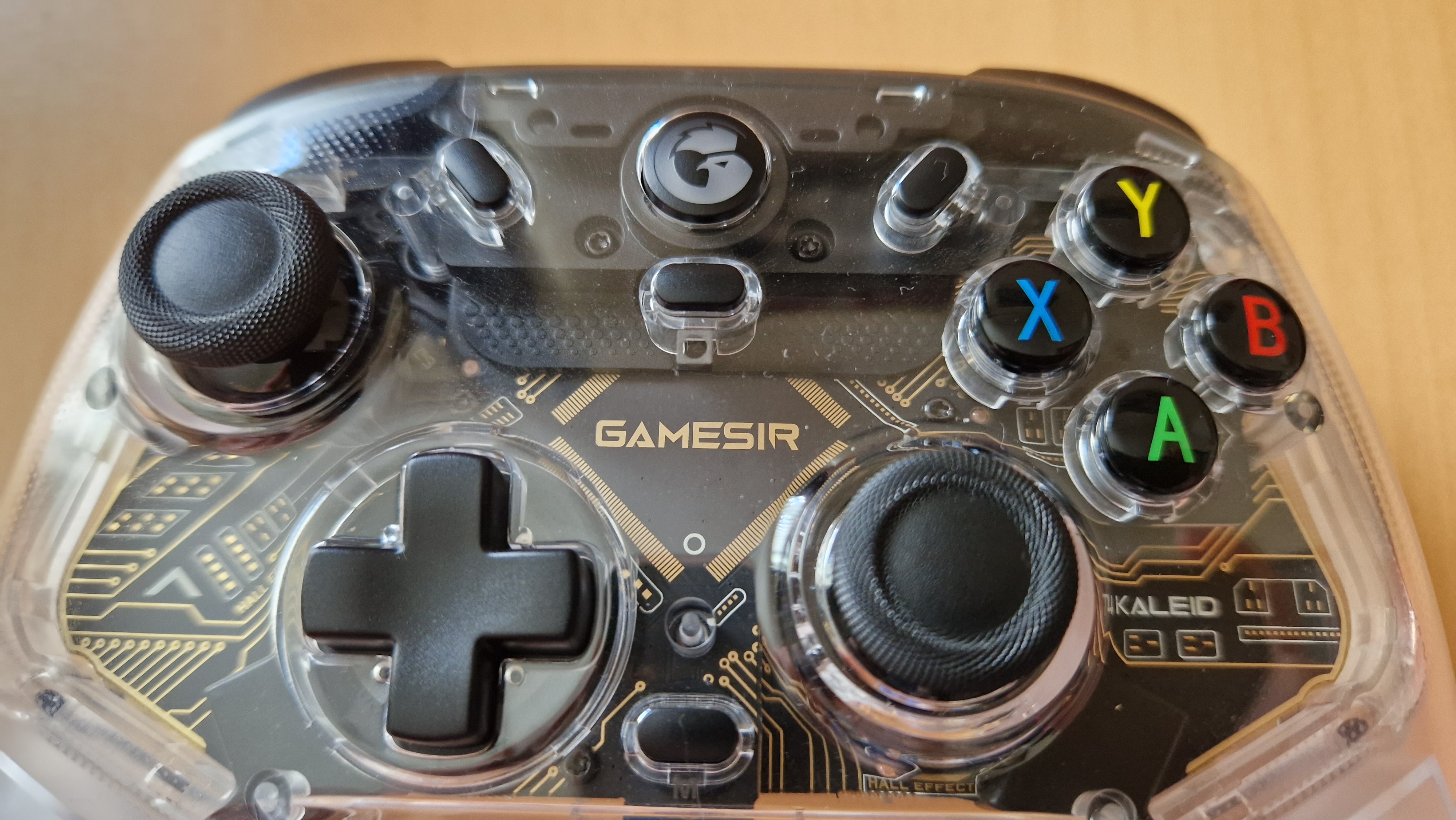
On PC, the controller felt just as at home, and playing Control and Shadow of the Tomb Raider felt great. Annoyingly, it wasn't quite the top performer I look for in a first-person shooter gamepad though. It's odd to me that the original T4 controller from GameSir, which I haven't tested, has four back buttons, but on this more expensive model, there are only two. For something like HUNT: Showdown or Apex Legends, two back buttons are better than none, but four is really the number you want to really give you the same kind of functionality as a keyboard and mouse player.
Furthermore, it's strange to me that the T4 Kaleid takes another step back from the original T4 in terms of usability. The function buttons on that controller are labeled, which would greatly help in switching between functions and customizing without the use of the companion software. As a part of that fully transparent design of the T4K, these buttons aren't labeled, and it takes a bit of guesswork to figure out which ones will do what, especially when you change platforms. For that reason, the manual is a vital must-keep. I've studied it time and time again seeing as I did the majority of testing on Nintendo Switch, and I always needed the manual's help in telling me what each button was.
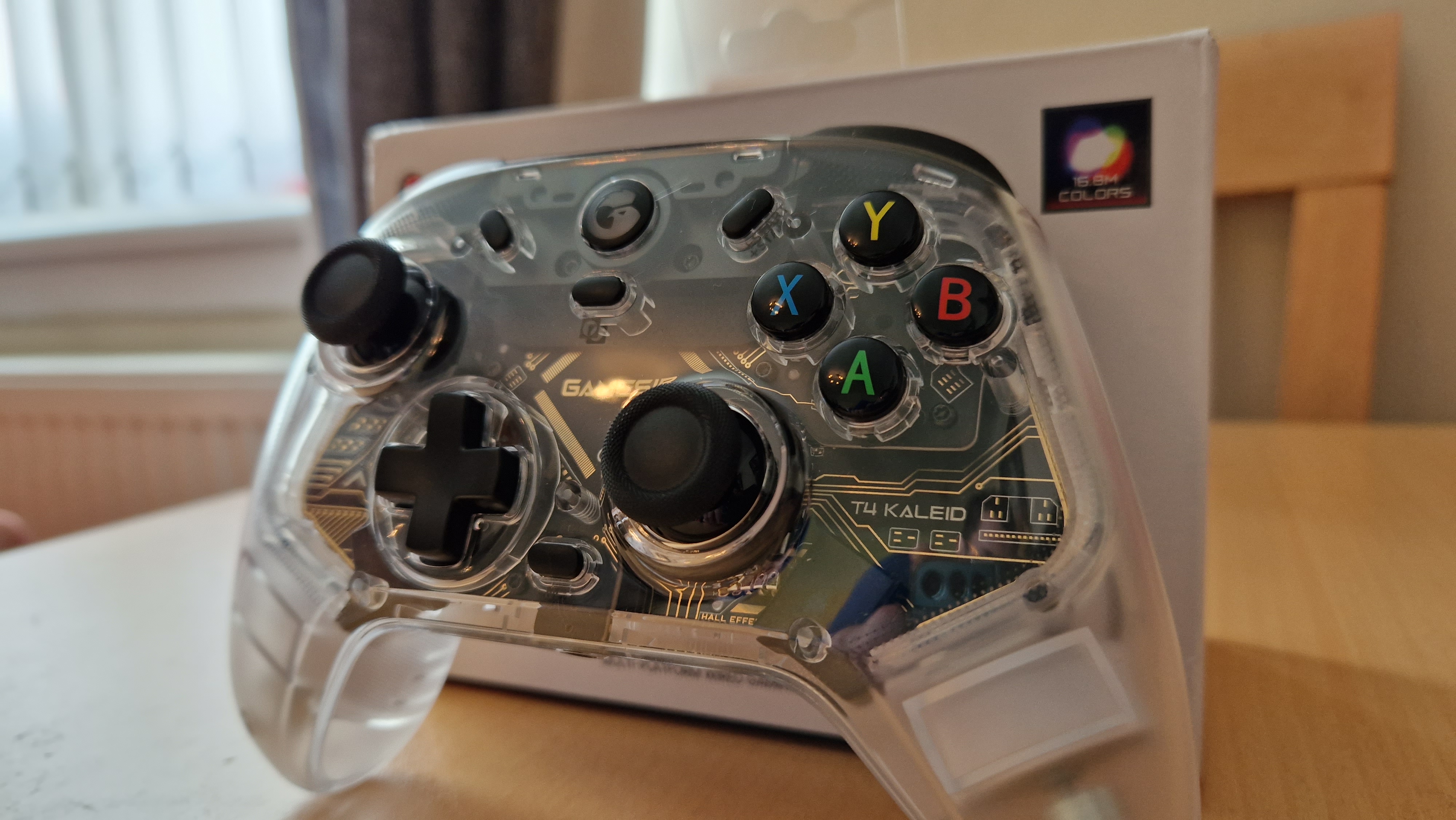
Should you buy the GameSir T4 Kaleid?
GameSir is building a reputation for highly functional controllers that don't break the bank. With its latest T4 Kaleid controller it makes me ask why on earth bigger companies charge so much for their gamepads. If GameSir can afford to put Hall Effect sticks in a controller that feels this good and costs under $50, how can Sony come out with the DualSense Edge for $199.99 - a controller that controversially still uses potentiometer sticks you can only replace by purchasing entire new modules.
It's actually really difficult to fault this controller, and in truth, I wish it had Xbox and PlayStation support because budget buyers would be lucky to have this on those platforms. I wish there was some wireless support, two more back buttons, and slightly easier-to-use function buttons. Other than that, I can't think of a reason not to recommend the T4 Kaleid.
If you're a PC player looking for a semi-decent controller to use in third-person games, shopping can be tough. You want a cheaper brand, but you want quality, and you want something that will last you. The T4 Kaleid is that controller, and its price is insanely affordable in the current market.
The transparent design feels like more than a flashy aesthetic choice to me. It feels like GameSir is taking a jab at its bigger rivals by showing just how much a gaming controller should cost. The T4K is transparent in more ways than one, then. It certainly makes me wonder just how much Sony and Microsoft should be charging for their pro controllers.
How we tested the GameSir T4 Kaleid
I tested the GameSir T4 Kaleid over a number of weeks while playing games on Nintendo Switch and PC. I used the manual and button combinations, as well as the companion software to customize functions and settings. I tested the Turbo function a few times and somehow managed to accidentally turn it on during a Spiritfarer session, but other than that didn't really use it all that much.
I put the controller's price-to-performance, as well as its longevity, through its paces with harder-than-usual button clicks and thumbstick pushes in the following games: Super Mario Odyssey, Super Smash Bros Ultimate, Unpacking, Super Mario 64, MarioKart 8, Animal Crossing New Horizons, Spiritfarer, Control, HUNT: Showdown, Apex Legends, and Shadow of the Tomb Raider.
If you'd like to hear more about our approach to reviewing technology and accessories, feel free to peruse our Hardware Policy.
Need a controller for a different platform? Read up on the best PS5 controllers, the best Xbox Series X controller, and the best mobile controllers.






